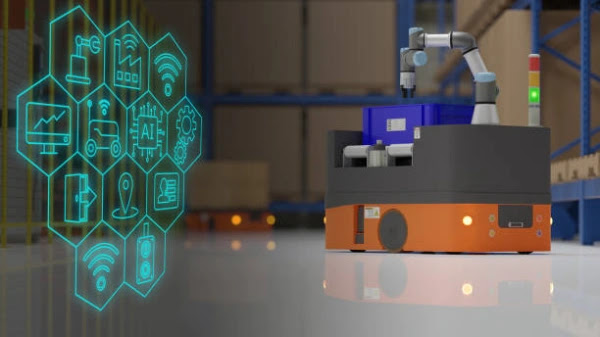Featured
- Get link
- X
- Other Apps
Is Space Technology the Future of Technology?

Space technology has long captured our imagination, serving
as a symbol of human ingenuity and exploration. In recent years, advancements
in space technology have led to groundbreaking innovations, transforming
various aspects of our lives. The question remains: is space technology the
future of technology? This exploration delves into the transformative potential
of space technology and its role in shaping the future of our world.
Unlimited Frontiers of Exploration
Space technology enables us to explore the vast expanse of
the cosmos, from our neighboring planets to distant galaxies. The exploration
of spiritual bodies, such as Mars, Saturn's moons, and exoplanets, provides
insights into the backgrounds of our solar organization and the potential for
extraterrestrial life. As technology continues to evolve, space exploration
promises unprecedented discoveries, expanding our understanding of the universe
and our place within it.
Satellite Revolution: Connecting the Globe
Satellites have revolutionized communication, navigation,
and global connectivity. From weather forecasting and disaster management to
internet access in remote regions, satellites play a vital role in our daily
lives. The proliferation of satellite constellations, such as Starlink and
OneWeb, is transforming internet accessibility, bridging the digital divide and
connecting communities worldwide. Space-based internet services are poised to
become a cornerstone of future technological development, empowering societies
with seamless connectivity and access to information.
Innovative Solutions for Earth's Challenges
Space technology offers innovative solutions to some of
Earth's most pressing challenges. Earth observation satellites monitor climate
change, deforestation, and natural disasters, providing crucial data for
environmental conservation and disaster management. Space-based solar power has
the potential to address energy demands sustainably, while space mining
promises access to precious resources, reducing pressure on Earth's finite
reserves. These innovative applications of space technology exemplify its potential
to mitigate global challenges and pave the way for a sustainable future.
Inspiring Scientific Advancements
Space technology drives scientific advancements, leading to
innovations with far-reaching implications. Research conducted in microgravity
environments aboard the International Space Station (ISS) provides valuable
insights into biology, materials science, and pharmaceuticals. Experiments in
space have led to breakthroughs in vaccine development, cancer research, and
the study of fundamental biological processes. The unique conditions of space
foster scientific discoveries, laying the groundwork for advancements in
medicine, technology, and various scientific disciplines.
Commercial Space Ventures: A New Frontier
The commercial space industry is experiencing unprecedented
growth, with private companies driving innovation and expanding our access to
space. SpaceX, Blue Origin, and other commercial ventures are developing
reusable rockets, reducing the cost of space travel and opening new
opportunities for exploration. Commercial space tourism, satellite services,
and space-based manufacturing are becoming viable markets, stimulating economic
growth and job creation. The entrepreneurial spirit in the space industry is
transforming space technology into a dynamic and competitive field, shaping the
future of space exploration and commercial endeavors.
Challenges and Ethical Considerations
While space technology holds immense promise, it also
presents challenges and ethical considerations. Space debris poses a threat to
existing satellites and future space missions, necessitating effective debris
mitigation measures. International collaboration and regulations are essential
to ensuring the sustainable use of space resources and preventing conflicts
over celestial bodies. Ethical questions related to space exploration, such as
the potential impact on extraterrestrial life and planetary environments,
require careful consideration and responsible stewardship.
Conclusion: A Promising Horizon
Space technology undeniably represents the future of
technology, offering limitless opportunities for exploration, innovation, and
scientific discovery. As humanity continues to venture into space,
collaboration between nations, regulatory frameworks, and ethical guidelines
will be pivotal in maximizing the benefits of space technology while addressing
its challenges. With ongoing advancements, space technology is set to
revolutionize not only our understanding of the universe but also our daily
lives, ushering in a future where the wonders of space become an integral part
of the human experience.
- Get link
- X
- Other Apps

